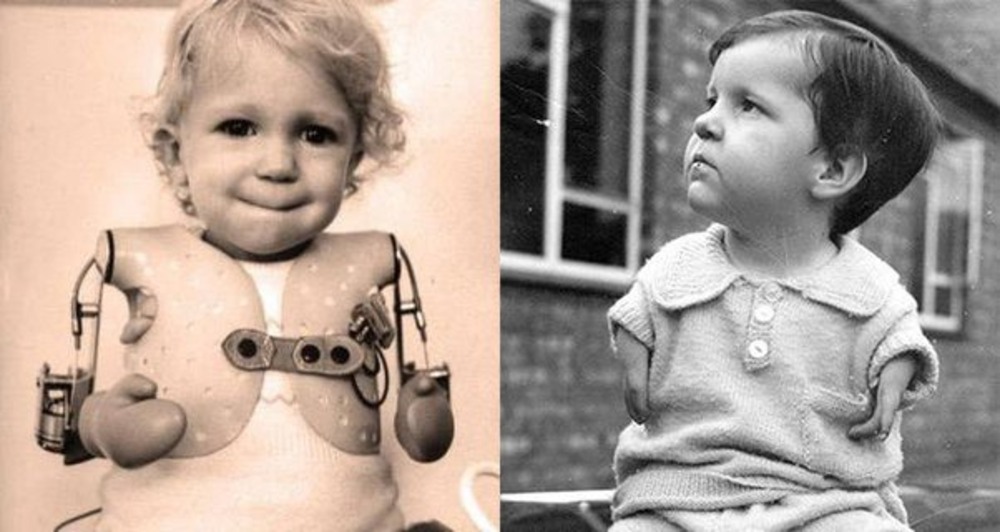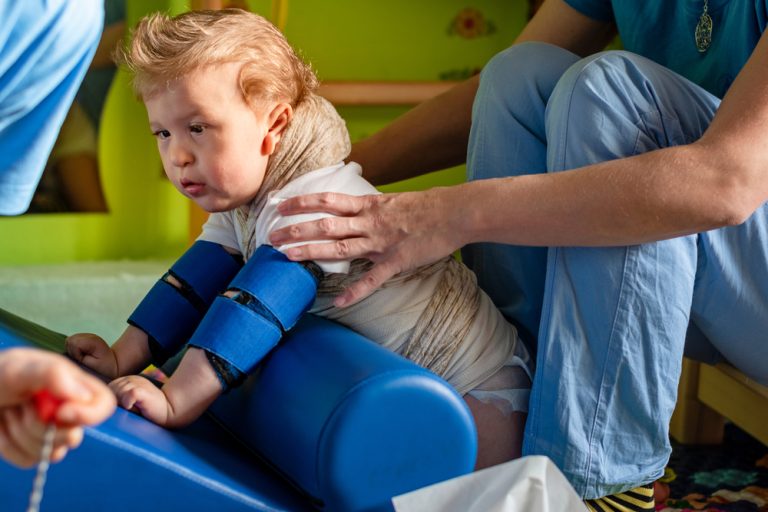Thalidomide Babies: The Consequences of a Controversial Drug
Have you ever wondered about the profound and often tragic consequences of a single drug like thalidomide babies on innocent lives? Thalidomide, a once-promising medication, took a dark turn, leaving a lasting impact on generations to come. For babies born to mothers who took thalidomide during pregnancy, the aftermath has been heart-wrenching and life-altering.
This blog will delve deep into the heart of this somber tale, unraveling the distressing reality faced by thalidomide babies and their families. Join us on this journey as we shed light on the haunting legacy of thalidomide, the medical research surrounding it, and the lasting impact on those affected.
Introduction to Thalidomide

Thalidomide was developed in the 1950s as a potential wonder drug to combat various ailments, including morning sickness during pregnancy. Initially, it seemed like a promising solution. However, tragic consequences soon followed.
The intent behind thalidomide was to provide relief for pregnant women experiencing symptoms such as nausea and vomiting. It was believed to be a safe alternative to other medications commonly used at the time. Unfortunately, this assumption proved to be terribly wrong.
In the late 1950s and early 1960s, reports began emerging of babies being born with severe birth defects after their mothers had taken thalidomide during pregnancy. These tragic cases shed new light on the dangers of the drug.
The devastating consequences included limb abnormalities, such as missing or extremely shortened limbs, as well as other malformations affecting the ears, eyes, and internal organs. These birth defects were often irreversible, leading to a lifetime of challenges for the affected individuals and their families.
The thalidomide babies tragedy prompted extensive research and investigations into the causes and effects of the drug. It revealed that thalidomide interfered with the development of embryos during pregnancy, resulting in a range of severe physical and cognitive impairments.
Today, the legacy of thalidomide serves as a heartbreaking reminder of the importance of rigorous testing, strict regulations, and the need for accurate and reliable information when it comes to medications used during pregnancy. It is crucial that we continue to raise awareness and advocate for the prevention of similar tragedies in the future.
Understanding Thalidomide’s Impact on Babies

Thalidomide, once marketed as a wonder drug to alleviate morning sickness and insomnia during pregnancy, resulted in devastating consequences for countless families worldwide. The use of thalidomide by expectant mothers led to a range of severe birth defects, profoundly impacting the affected babies’ lives.
Birth Defects Associated with Thalidomide
Thalidomide exposure during pregnancy has been linked to various birth defects, primarily affecting the limbs and internal organs of the developing fetus. Most notably, babies exposed to thalidomide in utero may experience phocomelia, a condition characterized by the absence or underdevelopment of limbs, resulting in the arms or legs appearing flipper-like or being entirely absent. Other limb abnormalities, such as shortened or malformed limbs, may also occur.
In addition to limb defects, thalidomide use during pregnancy has been associated with issues affecting the eyes, ears, heart, kidneys, and digestive system. Some babies may experience blindness or deafness, while others might have cardiac abnormalities or impaired organ function. These conditions often require lifelong medical interventions and monitoring.
Long-Term Effects on Development and Quality of Life
Babies who survive after being born with thalidomide-induced birth defects face numerous challenges as they grow older. The absence or limited use of limbs impacts daily activities, hindering their independence and mobility. These individuals may require assistive devices, such as prosthetics or wheelchairs, to navigate their environment.
Furthermore, thalidomide-affected individuals often experience developmental delays and cognitive impairments, affecting their intellectual and educational potential. They might require specialized educational programs and therapies to support their learning and social development.
The emotional and psychological impact on these individuals cannot be underestimated. Coping with physical limitations, societal stigmas, and the grief of lost opportunities requires immense resilience and support from their families and healthcare professionals.
To sum up, the tragic consequences of using thalidomide during pregnancy result in life-altering birth defects and long-term challenges for the affected individuals and their families. Understanding the impact of thalidomide on babies underscores the importance of caution, informed decision-making, and ongoing efforts to raise awareness about the risks associated with this drug.
By sharing knowledge and supporting affected individuals, we can strive for a future where such tragedies are prevented.
The Tragic History and Medical Research

Thalidomide once hailed as a groundbreaking pharmaceutical development, took a devastating turn and left a trail of tragic consequences in its wake. Let’s delve into the history of this drug, uncovering its initial discovery, the subsequent tragedies, and the extensive medical research conducted to understand its effects.
The Initial Discovery
- Thalidomide was first introduced in the late 1950s as a sedative and anti-nausea medication.
- It was marketed as an over-the-counter drug and prescribed to pregnant women to alleviate morning sickness.
- Initially, it gained popularity due to its perceived safety and effectiveness.
The Subsequent Tragedies
- Tragically, it was later discovered that thalidomide posed a severe risk to developing fetuses.
- The drug was found to cause a range of birth defects, leading to what became known as “thalidomide babies.”
- These infants often had limb deformities, such as missing or underdeveloped arms and legs.
- The impact on affected individuals and their families was profound.
- Daily activities and life opportunities were forever altered, leading to a lifetime of challenges.
Extensive Medical Research
In the wake of the thalidomide tragedy, rigorous medical research was conducted to understand the mechanisms and long-term effects of the drug. Scientists delved into the pharmacology and toxicology of thalidomide, seeking to identify the precise factors contributing to its devastating consequences.
The research revealed that thalidomide acts as a teratogen, causing developmental abnormalities in unborn children. It was discovered that the drug interferes with normal embryonic development, particularly affecting the formation and growth of limbs during a critical period of early pregnancy.
As the understanding of thalidomide’s effects deepened, researchers also explored potential treatments and interventions to mitigate its impact on affected individuals. Rehabilitation and support services aimed at improving quality of life were developed, highlighting the ongoing commitment to help thalidomide-affected individuals navigate their challenges.
Despite the tragedy, thalidomide played a significant role in shaping drug regulations and safety protocols. Its devastating consequences prompted a reevaluation of pharmaceutical testing and approval processes, leading to stricter regulations and comprehensive clinical trials to ensure the safety of medications during pregnancy.
The thalidomide tragedy remains a poignant reminder of the importance of thorough research and caution in the development and use of pharmaceuticals. It serves as a catalyst for ongoing efforts to raise awareness about the potential risks associated with medications, particularly during pregnancy, and underscores the need for continued scientific inquiry and advocacy to prevent future tragedies.
Remember, there is much more to explore regarding thalidomide and its impact on affected individuals and their families. Stay tuned for further sections that dive deeper into understanding and supporting those affected by this tragic chapter in medical history.
Risks and Precautions: Thalidomide Babies
When it comes to thalidomide use, especially during pregnancy, it is crucial to be aware of the associated risks and take necessary precautions. Understanding the potential harm that thalidomide can cause is essential for informed decision-making in order to protect the well-being of both the mother and the unborn child.
Risks during Pregnancy
- Thalidomide is known to increase the risk of birth defects when taken during pregnancy.
- Research has shown a strong link between thalidomide use in the first trimester and the development of severe limb abnormalities, such as missing or poorly formed limbs.
- Other potential birth defects may include abnormalities in the ears, eyes, heart, and internal organs.
Precautions and Safety Measures
Due to the well-documented risks associated with thalidomide, it is vital for healthcare providers and individuals considering thalidomide treatment to take certain precautions:
1. Strict Adherence to Product Labels
Thalidomide should only be used as directed by healthcare professionals. It is crucial to carefully read and follow the instructions provided on the product labels.
2. Reliable Methods of Birth Control
To prevent unintended pregnancies while using thalidomide, it is essential to use reliable methods of birth control. Discuss appropriate options with your healthcare provider.
3. Informed Decision-Making
It is crucial for both patients and healthcare providers to have open and transparent discussions regarding the potential risks and benefits of thalidomide treatment. This allows individuals to make informed decisions based on their specific circumstances.
4. Regular Monitoring and Communication
Throughout thalidomide treatment, regular monitoring and communication with healthcare providers are essential. This ensures the early detection of any potential complications or side effects, allowing for proactive management.
5. Access to Supportive Resources
Seek out support groups, organizations, and resources that specialize in thalidomide-related issues. These resources can offer guidance, education, and emotional support for affected individuals and their families.
By taking these precautions and being well-informed about the risks associated with thalidomide, individuals can make educated decisions regarding their healthcare choices, ultimately minimizing potential harm to themselves and their unborn children.
Support and Resources
If you or your family have been affected by thalidomide, it’s crucial to know that you’re not alone. There are numerous support groups, organizations, and resources available to provide assistance, guidance, and a sense of community. Here are some valuable resources to consider:
Support Groups and Organizations
Thalidomide Society
- The Thalidomide Society offers support, resources, and advocacy for individuals affected by thalidomide.
- They provide a platform for connecting with others facing similar challenges and offer emotional support and practical advice.
Thalidomide Trust
- The Thalidomide Trust is committed to providing support, financial assistance, and tailored services to individuals affected by thalidomide in the United Kingdom.
- They aim to enhance the quality of life for thalidomide survivors and their families through various programs.
Focus Foundation
- The Focus Foundation focuses on supporting individuals with Upper Limb Differences (ULDs), including those caused by thalidomide.
- They provide information, resources, and advocacy for improved understanding and acceptance of ULDs.
Additional Resources
MotherToBaby
- MotherToBaby is an organization that provides evidence-based information about medication exposures during pregnancy and breastfeeding.
- They offer individualized counseling and resources to help individuals make informed decisions about their health.
National Organization for Rare Disorders (NORD)
- NORD is dedicated to supporting individuals with rare diseases or conditions, including thalidomide-induced birth defects.
- They provide educational materials, advocacy, and connect individuals to appropriate resources and support networks.
Remember, reaching out for support can make a significant impact on your journey. These organizations and resources are just a starting point, and there may be other local support groups or initiatives available in your area. Never hesitate to seek assistance and connect with others who can offer guidance and understanding.
Personal Stories and Testimonials
Personal stories and testimonials offer a poignant glimpse into the lives of individuals directly impacted by thalidomide. These accounts not only shed light on the struggles they have endured but also highlight their strength and resilience. Through their stories, we gain a deeper understanding of the profound consequences of thalidomide and the ongoing efforts to advocate for those affected.
Triumph Over Adversity
- One such story is Lisa Johnson’s, a courageous thalidomide survivor who has dedicated her life to raising awareness about the drug’s devastating effects.
- Despite her limb deformities, Lisa embraced life with an indomitable spirit.
- Through her unwavering determination and advocacy work, she champions the rights of thalidomide-affected individuals, inspiring others to embrace their uniqueness and defy societal barriers.
Struggles and Resilience
- Mark Harrison, another thalidomide survivor, endured countless surgeries throughout his life to address the physical challenges caused by the drug.
- Despite the obstacles he faced, Mark became an accomplished artist, using his talent to express his journey and advocate for the rights of individuals with disabilities.
- His story serves as a testament to the resilience and creativity that can emerge from adversity.
Ongoing Advocacy
- Thalidomide survivors around the world have formed support groups and organizations to provide solace and resources for those affected.
- The Thalidomide Society is one such group that not only fosters a sense of community and understanding but also advocates for adequate compensation and support for survivors.
Inspiring Hope for the Future
- These personal stories and testimonials demonstrate the strength and determination of thalidomide-affected individuals and their unwavering commitment to raising awareness about the drug’s tragic consequences.
- By sharing their experiences, they offer hope and inspire others to join the fight for justice and prevention.
In conclusion, the personal stories and testimonials of thalidomide survivors provide a powerful insight into the challenges they have faced and the remarkable resilience they have displayed. Their stories inspire us to continue advocating for improved support systems, raising awareness, and preventing similar tragedies in the future.
The Final Note: Thalidomide Babies
To sum up, thalidomide has left a tragic and lasting impact on babies born to mothers who took the drug during pregnancy. The specific birth defects associated with thalidomide use, such as limb deformities and organ malformations, have resulted in long-term challenges for affected individuals.
Extensive medical research has been conducted to understand the effects of thalidomide and raise awareness about its devastating consequences.
It is crucial to ensure that healthcare providers and pregnant individuals are informed about the risks and precautions associated with thalidomide use. By making informed decisions and using reliable methods of birth control, the chances of thalidomide-induced birth defects can be significantly reduced.
Support groups, organizations, and resources are available to provide assistance and aid to thalidomide-affected individuals and their families. These platforms serve as a valuable source of support, guidance, and advocacy for those impacted by this tragic legacy.
By sharing personal stories and testimonials, we can shed light on the struggles and triumphs of individuals affected by thalidomide and raise awareness about the importance of prevention and support.
Together, we can work towards preventing future tragedies and ensuring a safer and more informed medical landscape for generations to come. Remember, knowledge and awareness are powerful tools in the fight against thalidomide-induced birth defects.
Frequently Asked Questions: Thalidomide Babies
A: The tragic consequences of using thalidomide during pregnancy result in life-altering birth defects and long-term challenges for the affected individuals and their families.
Understanding the impact of thalidomide on babies underscores the importance of caution, informed decision-making, and ongoing efforts to raise awareness about the risks associated with this drug. Sharing knowledge and supporting affected individuals can help strive for a future where such tragedies are prevented.







